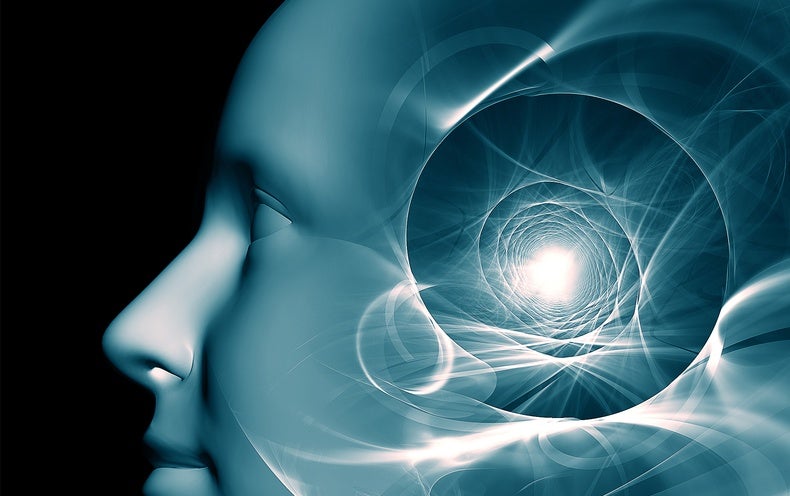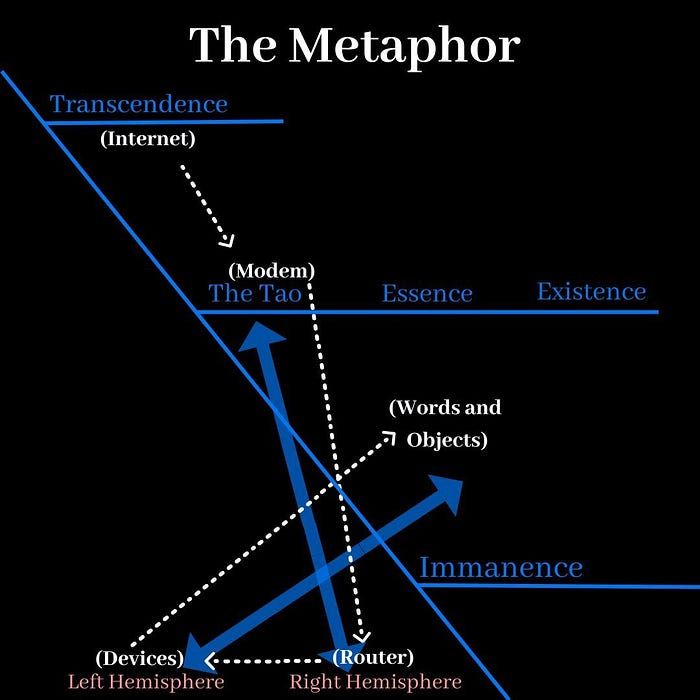We Don't Know What Consciousness is Because We Don't Know What the Tao Is

Your consciousness is what it’s like to be you. It’s your experiences of color and sound and smell; your feelings of pain, joy, excitement or tiredness. It’s what makes you a thinking, sentient being rather than an unfeeling mechanism. Philip Goff, Scientific American
Science is stumped: It can't figure out what consciousness is. It's not even at "first base" yet.

Brain imaging hasn't worked. It shows the brain in operation but doesn't explain anything, for obvious reasons: brain waves are visible; consciousness isn't. Unsurprisingly, physics has likewise proven worthless. There are now emerging theories revolving around natural selection and memory.
I should note McGilchrist hasn't figured it out either. The Hemisphere Hypothesis merely explains how consciousness works, which isn't the same thing as figuring out what it is. McGilchrist, I believe, freely admits agnosticism when it comes to consciousness.
The truly foundational aspects of our experience – starting with consciousness itself – belong to the realm of things which permit no ultimate resolution. The Matter with Things
But I respectfully (arrogantly and, therefore, ridiculously) submit that I've figured it out, even if my answer is merely a non-answer.
Consciousness is the thing that connects to full reality. And what is full reality? It is the Reality Spectrum, which includes (as That Which Is Prior to All Else) the Tao.
The problem is, the Tao is not knowable. It's not even nameable. Proofs for its existence are non-proofs: we logically know it must be there even though it's not subject to logic.
So my answer is a non-answer because the most important part of it ties to a thing that can't be defined.
Object X ultimately is the thing that connects to a fonger.
What's a 'fonger'?
I don't know.
F' you.
All is Arrows and Poles
But I would hazard this more satisfying answer: Consciousness is a process: ever-changing, yet changing on the Reality Spectrum and on the Metaxic Pole, which are things that don't change. It's why you can agree with Heraclitus that all is in flux and declare with the reprobates that everything is relative, yet stand firm with Russell Kirk's "permanent things."
Consciousness is all those arrows in The Metaphor:

The arrows symbolize consciousness: its workings, effects, influences, and processes.
But they don't tell you what consciousness itself is. This is the closest I can come:
Consciousness is the left hemisphere and right hemisphere working together to exist and flourish in accordance with the Tao.
That's a great ship I've built.
But it also crashes on the shoals of definition (again, what is the Tao?).
William James Would've Agreed
The author of the Scientific American piece points out:
Believe it or not, the debates we are currently having in the science of consciousness closely resemble debates that were raging in the 19th century.
Where did those debates end up?
Possibly with America's preeminent philosopher, a man who freely acknowledged what he didn't know. William James.
His conclusion?
Consciousness isn't an entity: It is a function.
It is the arrows.





